Our Home Sweet Hostel
Excerpt from Only in India: Adventures of an International Educator - FREE on Amazon Kindle until 1/24/19!
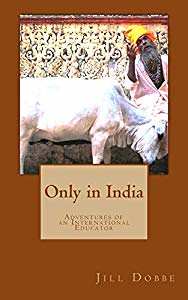
When we accepted the job to act as principals for this school, we never would have imagined we’d wind up being house parents, as well. The house parents were responsible for overseeing the boarding students and to make sure they completed their homework, took showers, went to bed at a reasonable hour and got up on time for school--basically, to be their “parents away from home.” They also planned weekend activities and trips so students would have a little fun on their days off.
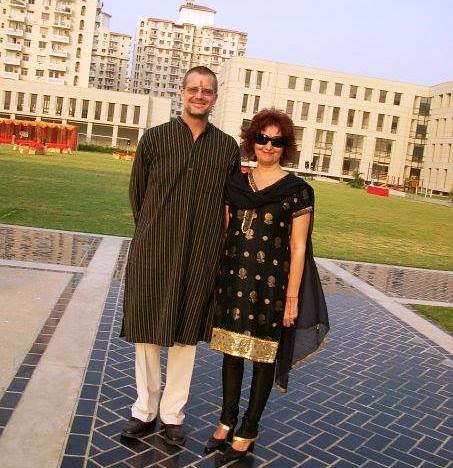
Dressed for the school Diwali celebration
The house mother was a kind, plump woman from northern India who loved working with the students and enjoyed teaching them arts and crafts after school. She was also a wonderful cook and once invited us over for a five-course lunch, which she managed somehow to cook on only a four-burner hotplate. It was the first time I had seen their flat, and I found it much cozier and more comfortable than ours. It was also quieter, roomier, better furnished, and recently painted. Dan and I were envious.
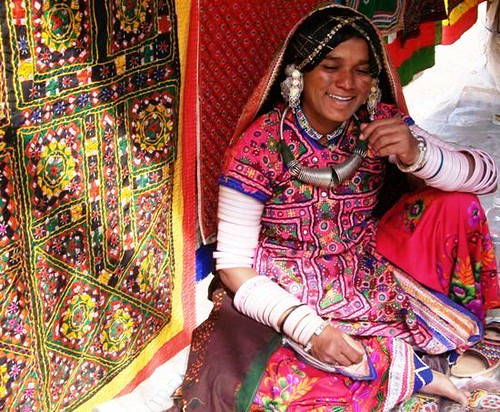
Man dressed for a Hindu celebration
But a few months in, the sweet woman’s husband, whose job was house father, began acting paranoid and had a nervous breakdown. During the days, he lurked around the school building taping conversations on his cellphone, and at nighttime, he went without sleep, staying awake until morning. Midway through the year, the Banerjees dismissed the hostel parents. After they were ordered to leave the school, no one was found to take over their responsibilities.
Dan and I discussed it, and because we liked their flat so much, we decided to move in and take over some of the responsibilities, despite also working full-time as the school’s principals. The flat was located on the very top floor of the four-story building, and one major downfall was that the hostel had no elevator. Oh, how I dreaded hiking up those four flights of stairs at the end of every day when I was baking from the heat and exhausted from school. Dan became the new “house-father” and took over all the house-parenting responsibilities, since the boarders were mostly high-school aged.
Boys and girls shared the first floor but occupied separate bedrooms. Each bedroom had ten twin beds that lined up side-by-side. A lounge area which included a T.V., couch and chairs, was also located on the bottom floor. Every room had air conditioning and the students kept it going full blast, so it felt like living in a freezer. They even had their own Dhobi-wallah who collected their clothes and washed them each day. Dan took over the responsibility of making sure the students were up and ready for school each morning, even yanking some of the oldest boys right out of their beds.
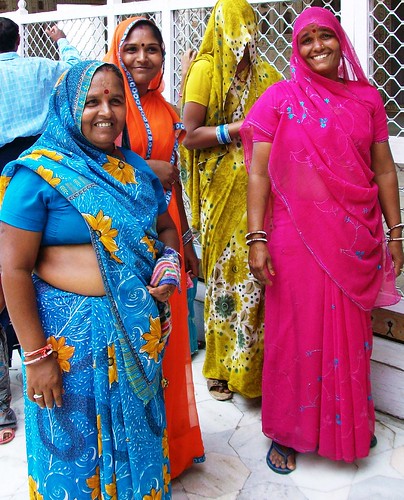
Indian women wearing their gorgeous saris
At times it felt like we were living in a hotel, without the convenience of an elevator, rather than in student housing. To make our door stand out from all the other plain wooden doors in the hallway, I hung a brass ‘Om’ symbol on it. It hung upside down until Bulu, our housemaid, showed me how to hang it properly. Our flat was located at the extreme end of the hallway and our one door opened onto a living/dining area and combined kitchen. The kitchen had a refrigerator and small stovetop with four burners, but again, no oven. By now I had surmised that Indian kitchens normally don’t have ovens, as traditional food is always cooked on top of the stove. The rest of the kitchen was well-equipped, but the cupboards were so high I had to stand on a wooden stool every time I needed to get something out of them. Whenever I cooked on the stovetop, I had to stand on that same stool in order to reach the pots on the burners. The kitchen seemed like it was built for giants, but at least we weren’t living with any ant farms or hornet’s nests.
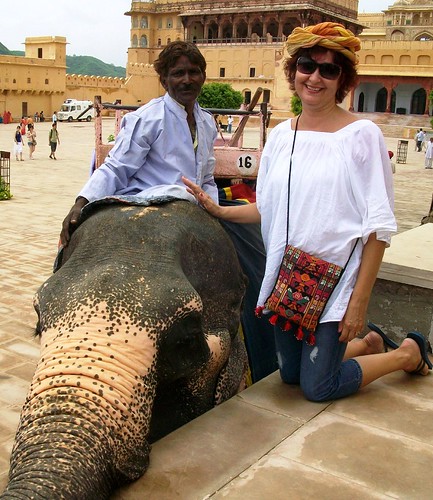
Petting an elephant outside the Amer Fort
Our only bathroom in the flat had a shower with a thick electrical cord hanging above it. We never saw any sparks flying but made sure to take quick showers, hoping the whole time we wouldn’t be electrocuted. Hot water in the flat was sporadic and more obtainable in the hotter months, since the water tank was heated mainly by sunlight. In the winter we shivered and our teeth chattered while water practically turned to ice as it dribbled from the faucets.
On the morning of our move to the new flat, Mrs. Banerjee arranged for several school workers to help carry our belongings over. Twenty lithe Indian men showed up at our front door early on that Saturday, crowding into the living room. Silently, they stood and stared waiting for directions.
“Well, I guess we’ll start here,” Dan said as he pointed toward the piles of boxes that we had already stacked up in our living room. Each worker then grabbed a few items and carried them out the door, across the field, and up the four flights of stairs to our new flat. No one said a word. They marched silently behind one another.
“Look at them go!” I shouted at Dan. “They look like a line of robots.”
We watched the band of laborers tramp along with our personal possessions of clothing, books, plants, and furniture--in their arms, on their backs, and even on their heads. We observed in amazement as they shuffled back and forth in single file between the two flats until it was completely empty, all except for the hornet’s nest, which still hung from the roof. We left that as a surprise welcoming gift for the new renters.
The main entrance of the hostel dormitory faced our school, but the other three sides looked out onto grassy fields, building sites and workers’ huts. The entire area around the school was booming with new construction, and the sounds of hammering and sawing were heard late into the night. In the midst of the new expansive buildings were small makeshift wooden huts that housed the laborers and their families. The huts were bare bones and had no running water or electricity, which meant that they had to use the adjacent fields for their communal toilets.
Early on the first morning in our new flat, I stumbled into the tiny kitchen to make tea. I stepped up onto my small footstool and picked up the kettle. As I reached for it, I glanced up and peered out the small window that sat above the stove. I noticed a number of single men slowly drifting and sauntering into the field. I couldn’t figure out what was going on until I saw some of them squat down.
“Oh. My. God!” I quietly uttered to myself. “Is that…are they…?
Against a dramatic backdrop of a rosy dawn, men were emptying their bowels all across the field. I stared in part-disgust, part-fascination as one-by-one, men hiked to an open spot, pulled down their pants, flashed their bare butts and relieved themselves. The neighborhood pigs and cows also pranced around the field, traipsing right past the men who continued on with their business. I turned away from the window, shocked, but also saddened that they had to resort to using a field as their toilet.
Outside the gate behind the hostel was a deeply-rutted dirt road. Lining the road on one side were makeshift food kiosks and benches where construction crews gathered for hot meals. Spicy food smells mixed with cow dung emanated along the road. A small Hindu mosque filled with statues of Indian gods sat on the opposite side of the road adjacent to a deep, mud-filled swamp. On a daily basis, a small herd of humpbacked bulls wandered into the mucky swamp to cool off. They lay in the sludge for hours, immersing their entire bodies, with only their large heads visible. Around the same time each afternoon, the bulls, with their crooked, bony backs, languidly plucked themselves from their mud baths and followed one another out the gate and down the road to their next rendezvous. Even though some things about India continued to shock me, there were moments of magic that made me glad to have come.
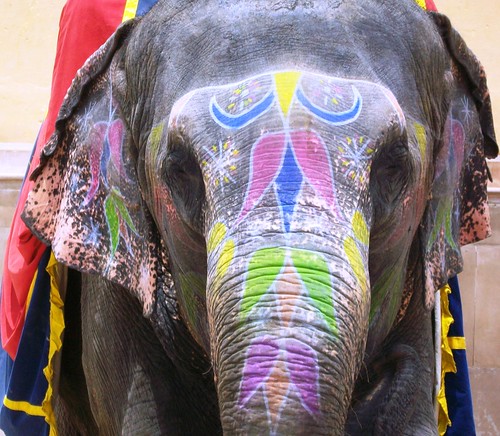
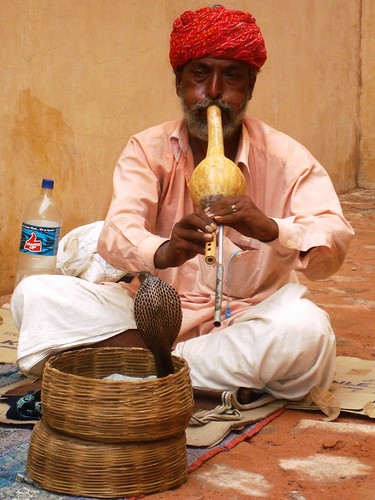
Snake charmer
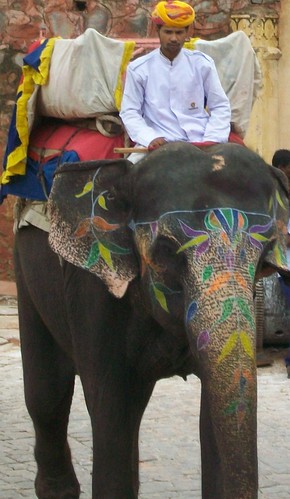
Rajasthani elephant and mahout
More of Jill's books here on Wandering Educators:
Life as an Overseas Educator: Kids, Camels, and Cairo
Here We Are & There We Go
Jill is an international educator and published author who writes about her experiences living and working in schools and countries around the world. She presently lives in her seventh country, Honduras, with her husband, Dan, and her Yorkie-Poo, Mickey. While working as an elementary principal, Jill also reads voraciously, travels throughout Central and South America, and takes photos of the beautiful people and countryside of Latin America, while muddling her way through the Spanish language. Jill loves her life as an international educator, and most days, feels like she is living her dream.
www.facebook.com/jilldobbeauthor
www.twitter.com/jilldobbe
www.instagram.com/jmdobbe
All photos courtesy and copyright Jill Dobbe
